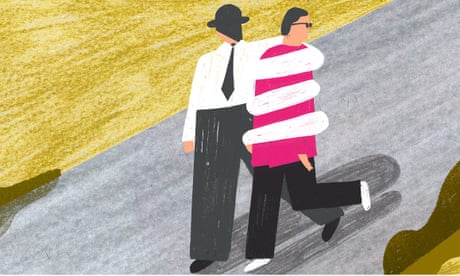Should you choose time over money, or money over time? This is one of those so-called dilemmas of happiness that isn’t really a dilemma at all, because the answer’s so painfully obvious. Circumstances might oblige you to choose money over time. But if you truly, ultimately value a large bank balance over meaningful experiences, you’re what’s known in the psychological literature as a doofus. Money, after all, is just an instrument for obtaining other things, including time – whereas time is all we’ve got. And to make matters worse, you can’t save it up: if money worked like time, every new deposit into your account would be immediately eliminated by a transaction fee of exactly the same size. However much you hate your bank, it’s surely not that bad.
And yet we do choose money over time, again and again, even when basic material wellbeing doesn’t demand it. Partly, no doubt, that’s because even well-off people fear future poverty. But it’s also because the time/money trade-off rarely presents itself in simple ways. Suppose you’re offered a better-paid job that requires a longer commute (more money in return for less time); but then again, that extra cash could lead to more or better time in future, in the form of nicer holidays, or a more secure retirement. Which choice prioritises time, and which money? It’s hard to say.
Thankfully, a new study sheds a little light on the matter. The researchers Hal Hershfield, Cassie Mogilner and Uri Barnea surveyed more than 4,000 Americans to determine whether they valued time or money more, and how happy they were. A clear majority, 64%, preferred money – but those who valued time were happier. Nor was it only those rich enough to not stress about money who preferred time: after they controlled for income, the effect remained. Older people, married people and parents were more likely to value time, which makes sense: older people have less time left, while those with spouses and kids presumably either cherish time with them, or feel they steal all their time. Or both.

The crucial finding here is that it’s not having more time that makes you happier, but valuing it more. Economists continue to argue about whether money buys happiness – but few doubt that being comfortably off is more pleasant than struggling to make ends meet. This study makes a different point: it implies that even if you’re scraping by, and thus forced to focus on money, you’ll be happier if deep down you know it’s time that’s most important.
It also contains ironic good news for those of us who feel basically secure, moneywise, but horribly pushed for time. If you strongly wish you had more time, as I do, who could accuse you of not valuing it? At least my craving for more time shows that my priorities are in order, and maybe that means I’ll savour any spare time I do get. We talk about scarce time like it’s a bad thing. But scarcity’s what makes us treat things as precious, too.
No comments:
Post a Comment